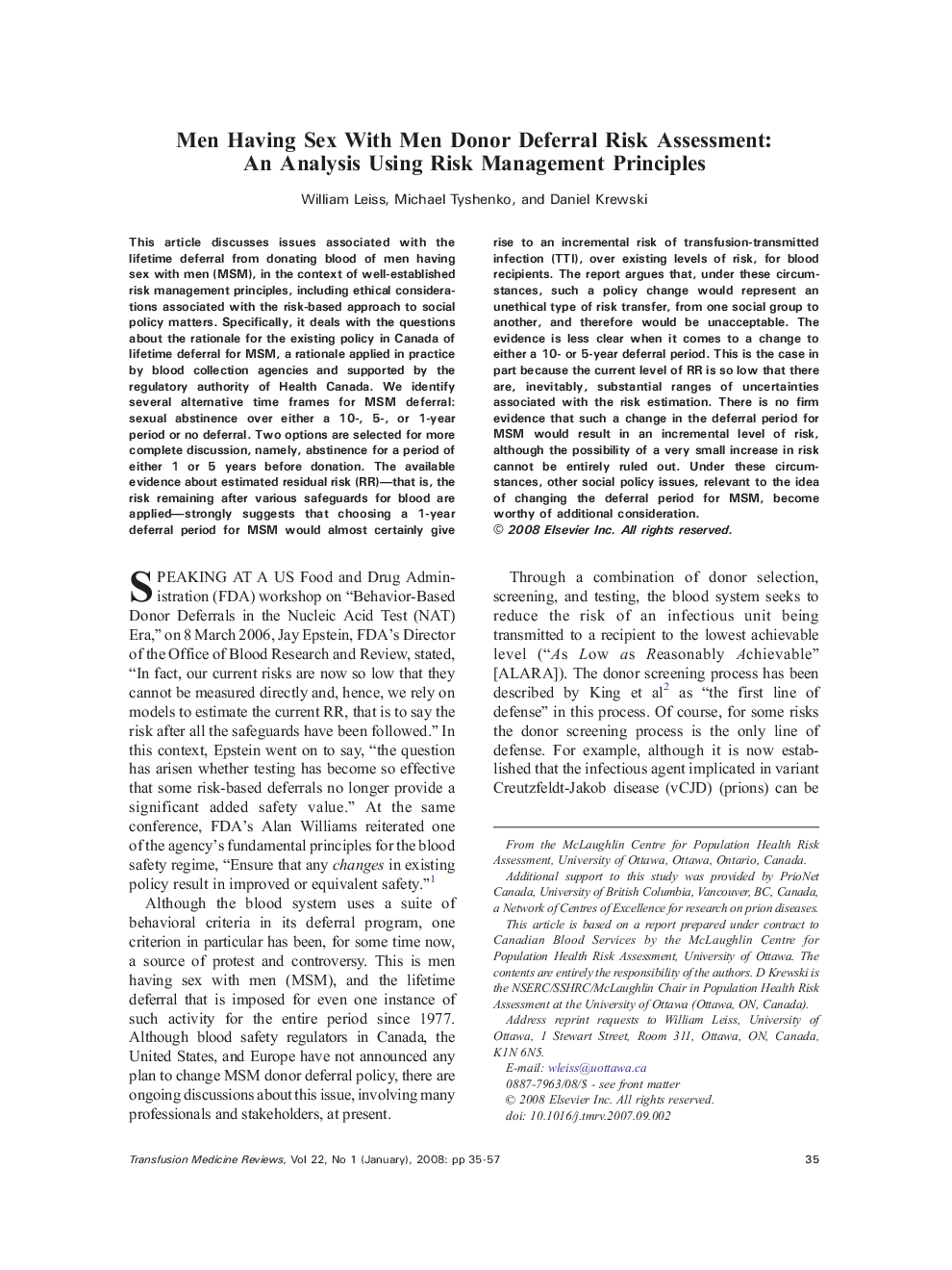| Article ID | Journal | Published Year | Pages | File Type |
|---|---|---|---|---|
| 3336943 | Transfusion Medicine Reviews | 2008 | 23 Pages |
This article discusses issues associated with the lifetime deferral from donating blood of men having sex with men (MSM), in the context of well-established risk management principles, including ethical considerations associated with the risk-based approach to social policy matters. Specifically, it deals with the questions about the rationale for the existing policy in Canada of lifetime deferral for MSM, a rationale applied in practice by blood collection agencies and supported by the regulatory authority of Health Canada. We identify several alternative time frames for MSM deferral: sexual abstinence over either a 10-, 5-, or 1-year period or no deferral. Two options are selected for more complete discussion, namely, abstinence for a period of either 1 or 5 years before donation. The available evidence about estimated residual risk (RR)—that is, the risk remaining after various safeguards for blood are applied—strongly suggests that choosing a 1-year deferral period for MSM would almost certainly give rise to an incremental risk of transfusion-transmitted infection (TTI), over existing levels of risk, for blood recipients. The report argues that, under these circumstances, such a policy change would represent an unethical type of risk transfer, from one social group to another, and therefore would be unacceptable. The evidence is less clear when it comes to a change to either a 10- or 5-year deferral period. This is the case in part because the current level of RR is so low that there are, inevitably, substantial ranges of uncertainties associated with the risk estimation. There is no firm evidence that such a change in the deferral period for MSM would result in an incremental level of risk, although the possibility of a very small increase in risk cannot be entirely ruled out. Under these circumstances, other social policy issues, relevant to the idea of changing the deferral period for MSM, become worthy of additional consideration.
